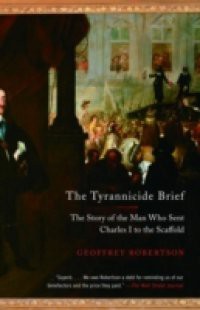Charles I waged civil wars that cost one in ten Englishmen their lives. But in 1649 Parliament was hard put to find a lawyer with the skill and daring to prosecute a king who claimed to be above the law. In the end, they chose the radical lawyer John Cooke, whose Puritan conscience, political vision, and love of civil liberties gave him the courage to bring the king to trial. As a result, Charles I was beheaded, but eleven years later Cooke himself was arrested, tried, and executed at the hands of Charles II.Geoffrey Robertson, a renowned human rights lawyer, provides a vivid new reading of the tumultuous Civil War years, exposing long-hidden truths: that the king was guilty, that his execution was necessary to establish the sovereignty of Parliament, that the regicide trials were rigged and their victims should be seen as national heroes. Cookes trial of Charles I, the first trial of a head of state for waging war on his own people, became a forerunner of the trials of Augusto Pinochet, Slobodan Milosevic, and Saddam Hussein. The Tyrannicide Brief is a superb work of history that casts a revelatory light on some of the most important issues of our time.From the Trade Paperback edition.

